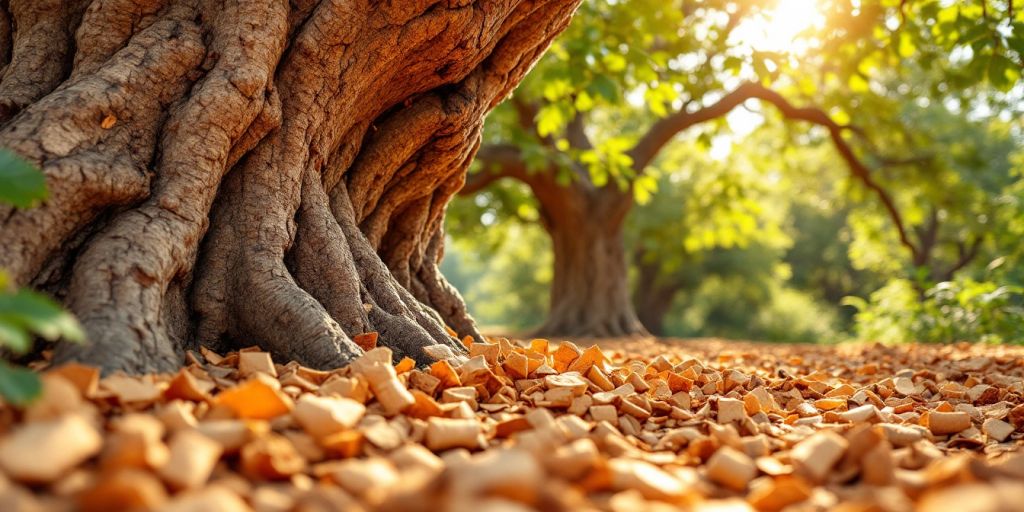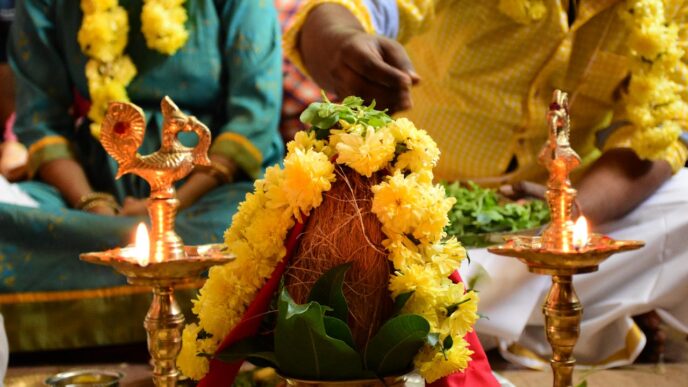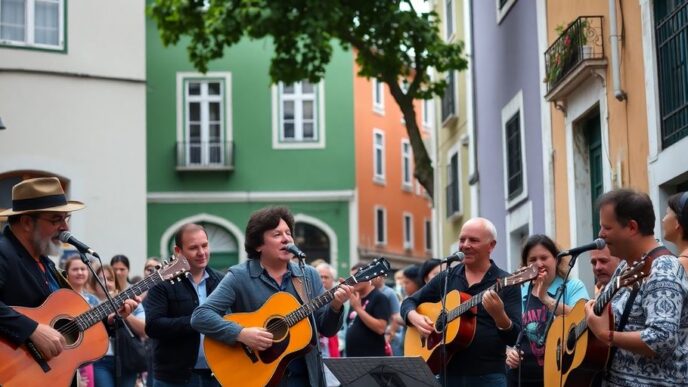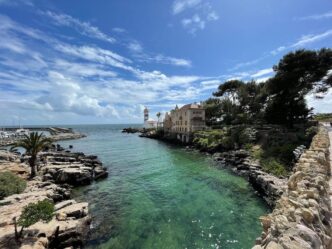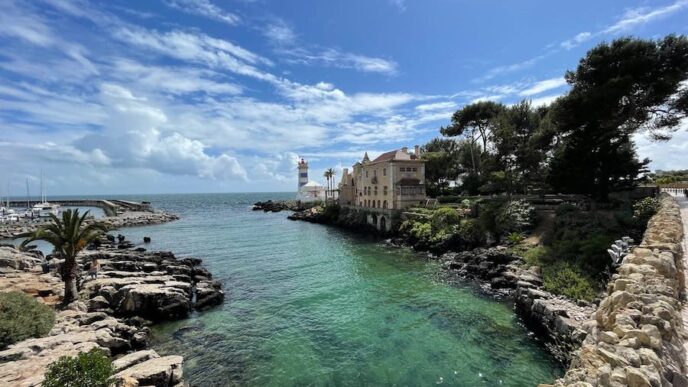The Historical Significance of Portugal’s Cork Industry
Cork in Portuguese Monuments and Heritage Sites
Cork has played a vital role in Portugal’s history, appearing in many significant monuments and heritage sites. Here are some notable examples:
- Convento de Cristo in Tomar features cork oak trunks in its Chapter Room, symbolizing its connection to the Age of Discoveries.
- The Convento dos Capuchos in Sintra used cork to enhance comfort in monks’ cells, showcasing its practical applications.
- Chalet da Condessa d’Edla in Sintra highlights cork as a decorative element, reflecting the romantic style of the 19th century.
The Role of Cork in Portuguese Maritime History
Cork was essential for Portuguese navigators during the Age of Exploration. It was used in the construction of caravels, the ships that helped Portugal establish trade routes and colonies. This material made ships lighter and more buoyant, allowing for longer voyages across the seas.
Cork in Traditional Portuguese Arts and Crafts

Cork is not just a functional material; it has also inspired creativity in Portuguese arts and crafts. Some key points include:
- Nativity sets from the 18th century, crafted by sculptor Machado de Castro, feature cork scenarios that are now considered decorative art.
- Local museums, like the Museum José Régio in Portalegre, showcase cork’s role in traditional crafts, providing insight into its cultural significance.
- Festivals celebrating cork highlight its importance in Portuguese culture, offering a glimpse into the community’s connection to this unique material.
Cork is more than just a product; it represents an insight into the rich culture of Portugal. Its historical significance is woven into the fabric of the nation, from its monuments to its maritime achievements and artistic expressions.
Geographical Distribution of Cork Oak Forests in Portugal

Cork oak forests are a vital part of Portugal’s landscape, covering about 8% of the country’s total area. These forests are mainly found in the central and southern regions, where the conditions are just right for cork oak trees to thrive. Here’s a closer look at the geographical aspects of cork oak forests in Portugal:
Major Cork-Producing Regions
- Alentejo: This region is often called Cork Country because it produces more than half of the world’s cork. The cork oaks here grow in a unique landscape of hills and plains.
- Algarve: Known for its high-quality cork, this area contributes significantly to Portugal’s cork production.
- Santarém, Évora, Setúbal, Portalegre, and Beja: These districts are the top producers, supplying about 90% of the total cork harvested in Portugal.
Climate and Soil Conditions Favoring Cork Oak Growth
- Mild Winters: The cork oak thrives in regions with mild winters and warm summers, which are typical in southern Portugal.
- Well-Drained Soils: The cork oak prefers deep, moist, and well-drained soils, which are abundant in the Mediterranean climate.
- Rainfall: Adequate rainfall, especially in spring, supports the growth of cork oaks and the rich biodiversity around them.
Conservation Efforts and Legal Protections
- Legal Restrictions: Portuguese law protects cork oaks by allowing harvesting only once every nine years to ensure the trees remain healthy.
- Research Initiatives: The establishment of research institutes focuses on improving cork quality and sustainable practices.
- Protected Areas: Many cork oak forests are designated as protected areas, helping to preserve these vital ecosystems for future generations.
Economic Impact of the Cork Industry in Portugal

The cork industry plays a vital role in Portugal’s economy, contributing significantly to both local and national levels. Here’s a closer look at its economic impact:
Contribution to National GDP
- Major Export: Portugal produces over 50% of the world’s cork, making it a leading exporter.
- Revenue Generation: The cork industry contributes substantially to the national GDP, with exports accounting for a significant portion of the economy.
- Market Growth: The demand for cork products has been increasing, especially in sectors like construction and fashion.
Employment and Workforce in the Cork Sector
- Job Creation: The cork industry employs around 20,000 workers across various factories.
- Skill Development: Many workers receive specialized training in cork production techniques, enhancing their skills and job prospects.
- Community Support: The industry supports local communities by providing stable jobs and promoting local craftsmanship.
Export Markets and Trade Relationships
- Global Reach: Portugal exports cork to numerous countries, including the United States and the United Kingdom.
- Trade Partnerships: Strong trade relationships have been established, helping to boost the economy and create new opportunities.
- Innovation in Products: The industry is adapting to market needs by developing new cork products, which helps maintain its competitive edge.
Overall, the cork industry is not just a traditional sector; it is a dynamic part of Portugal’s economy that continues to evolve and adapt to global trends. As the country seeks to attract skilled professionals through initiatives like digital nomad tax breaks, the cork industry remains a cornerstone of economic stability and growth.
Innovations and Technological Advances in Cork Production
Modern Harvesting Techniques
The cork industry has seen significant changes in how cork is harvested. Some of the key advancements include:
- Use of machinery: Instead of traditional methods, modern machines are now used to extract cork more efficiently.
- Precision tools: New tools allow for more precise cuts, reducing damage to the trees and improving cork quality.
- Training programs: Workers are now trained in these new techniques, ensuring better practices in cork harvesting.
Sustainable Practices and Environmental Impact
Sustainability is a major focus in the cork industry today. Important practices include:
- Replanting initiatives: For every cork oak harvested, new trees are planted to ensure the forest remains healthy.
- Waste reduction: Innovations have led to less waste during the cork production process, making it more eco-friendly.
- Carbon footprint: Cork forests act as carbon sinks, helping to combat climate change.
Research and Development in Cork Applications
Ongoing research is expanding the uses of cork beyond traditional products. Key areas of focus are:
- New materials: Scientists are developing composite materials that combine cork with other substances for enhanced properties.
- Innovative products: Cork is being used in various industries, from construction to fashion, showcasing its versatility.
- Market expansion: Research is aimed at finding new markets for cork products, increasing demand and supporting the industry.
Overall, the cork industry is undergoing a tech transformation, moving away from older methods to embrace smarter, more efficient technology. This shift not only improves production but also helps in maintaining the ecological balance of cork oak forests.
Diverse Applications of Cork Products

Cork is a unique material with many uses beyond just wine stoppers. Here are some of the most popular applications:
Cork in the Wine Industry
- Wine Stoppers: Traditionally, cork has been used for sealing wine bottles, ensuring that the wine stays fresh.
- Champagne Disks: Special cork disks are used in champagne bottles to prevent glue from touching the drink.
- Cork Discs: These are also used in various beverages, providing a natural barrier.
Cork in Construction and Insulation
- Floor Tiles: Cork tiles are gaining popularity again. They are warmer and softer than traditional tiles, making them great for homes.
- Soundproofing: Due to its cellular structure, cork is excellent for insulation and soundproofing in buildings.
- Eco-Friendly Insulation: Cork is a sustainable option for insulating materials in construction.
Fashion and Lifestyle Products Made from Cork
- Handbags and Wallets: Cork is increasingly used in fashion, with items like bags and wallets becoming trendy.
- Footwear: Shoes made from cork are not only stylish but also eco-friendly.
- Yoga Mats: Cork yoga mats are popular because they provide a non-slip surface, especially when wet.
Portugal, the world’s leading cork producer, is finding new uses for the material, from footwear to furniture, as demand for wine bottle stoppers wanes. This versatility makes cork a valuable resource in various industries, showcasing its potential beyond traditional applications.
Challenges and Future Prospects of the Cork Industry
Competition from Synthetic Alternatives
The cork industry faces significant challenges from synthetic materials. These alternatives are often cheaper and do not carry the risk of wine spoilage, known as “cork taint.” However, cork has unique benefits:
- Sustainability: Cork is harvested without cutting down trees, making it an eco-friendly choice.
- Quality: Modern cork production has improved, reducing the chances of cork taint.
- Market Demand: There is a growing preference for natural products, which can favor cork over synthetics.
Impact of Climate Change on Cork Production
Climate change poses a serious threat to cork oak forests. Changes in weather patterns can affect cork quality and yield. Key concerns include:
- Drought: Increased temperatures and reduced rainfall can stress cork trees, impacting growth.
- Pests and Diseases: Warmer climates may lead to more pests that harm cork oaks.
- Forest Fires: Higher temperatures increase the risk of wildfires, which can devastate cork forests.
Strategies for Market Expansion and Diversification
To ensure a bright future, the cork industry must adapt and innovate. Possible strategies include:
- New Products: Expanding into markets like construction and fashion can open new revenue streams.
- Research and Development: Investing in technology can improve production efficiency and product quality.
- Education and Awareness: Promoting the benefits of cork can help consumers choose it over synthetic options.
In conclusion, while the cork industry faces challenges, its sustainable practices and unique qualities position it well for future growth. By addressing these issues head-on, the industry can continue to thrive in a changing world.
Cultural and Ecological Importance of Cork Oak Forests
Cork oak forests, known as montados, play a vital role in both the environment and the culture of Portugal. These unique ecosystems are not just about cork production; they are essential for biodiversity and cultural heritage.
Cork Forests as Carbon Sinks
- Carbon Capture: Cork oaks are remarkable trees that can capture up to 73 kg of CO2 for every kilogram of cork produced. This makes them significant in the fight against climate change.
- Longevity: These trees can live for 150 to 200 years, continuously contributing to carbon sequestration without being cut down.
- Sustainable Harvesting: The cork is harvested every nine years, allowing the trees to regenerate and maintain their health.
Biodiversity in Cork Oak Ecosystems
- Wildlife Habitat: The montados are home to 42 bird species, including migratory birds from Northern Europe. They also support various butterflies and plants.
- Rare Species: The Iberian lynx, a critically endangered species, can be found in these forests, highlighting their ecological importance.
- Flora and Fauna: The cork oak forests protect numerous rare plants and animals, making them a biodiversity hotspot.
Cultural Traditions and Festivals Celebrating Cork
- Historical Significance: Cork has been used in Portuguese culture for centuries, from traditional crafts to modern applications.
- Festivals: Local festivals celebrate cork harvesting and its importance to the community, showcasing traditional music, dance, and food.
- Cultural Heritage: Many monuments and heritage sites in Portugal feature cork, reflecting its deep-rooted significance in the nation’s history.
In summary, the cork oak forests of Portugal are not only crucial for the environment but also for the cultural identity of the country. Their preservation is essential for maintaining biodiversity and honoring the traditions that have shaped Portuguese society.
Frequently Asked Questions
What is cork and why is it important to Portugal?
Cork is the bark of the cork oak tree, and it’s really important to Portugal because the country produces more than half of the world’s cork. This makes it a key part of Portugal’s economy.
How is cork harvested?
Cork is harvested by carefully stripping the outer bark of the cork oak tree. This is done every nine years to protect the tree and allow it to grow back.
What are some common uses for cork products?
Cork is used for many things, like wine bottle stoppers, flooring, insulation, and even in fashion items like bags and shoes.
How does cork production help the environment?
Cork oak forests are great for the environment because they absorb a lot of carbon dioxide, helping to combat climate change.
Are there any challenges facing the cork industry?
Yes, the cork industry faces challenges like competition from synthetic materials and the effects of climate change on cork production.
What makes Portuguese cork different from cork from other countries?
Portuguese cork is known for its high quality and unique properties, which makes it highly sought after in global markets.

